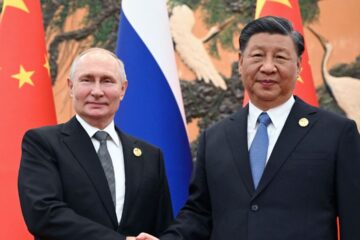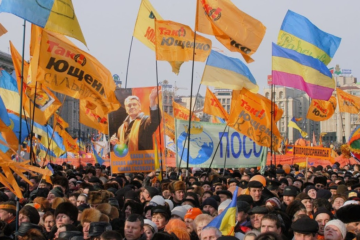CENTRAL AFRICAN REPUBLIC : civil war and Russian predation
I. Civil Wars
Christians make up 50% of the Central African Republic (CAR) population while Muslims represent 15%. The latter have long been a persecuted minority. Animism is the main belief in the rest of the population.

A. First civil war (2004-2007)
In 2003, François Bozizé seized power after a coup. Several Muslim rebel groups in the North-East of the country opposed his ruling which led to the first CAR civil war (aka CAR Bush War). The conflict lasted between 2004 and 2007. The multiple peace agreements concluded between 2007 and 2012 didn’t deliver the expected results and violence remained high in CAR.
B. Second civil war (since 2012)
In 2012, most of the groups who fought against Bozizé in 2004-2007 gathered in the Seleka (“coalition” in sango) to overthrow him. The large majority of its members were Muslims and they endeavoured to avenge abuses committed against their community. They also sought to take control of territories and resources in the North and East of CAR.
Christian communities decided to face the Seleka and they formed pro-Bozizé militias that gathered in the anti-Balaka movement.

It is worth noting that both the Seleka and the anti-Balaka were heterogenous coalitions. Their various factions often had divergent religious beliefs, ambitions and strategies. Religion was not the sole reason for clashes between the two coalitions.
Eventually, in 2013, the Seleka seized the capital Bangui and established a transitory government. Nevertheless, fighting didn’t stop and the Seleka then broke up into several groups that are now known as ex-Seleka.
C. UN and EU interventions
Between 2013 and 2016, the UN gave its approval to France’s Operation Sangaris that counted around 2,000 troops. It also set up the United Nations Multidimensional Integrated Stabilization Mission in the Central African Republic (MINUSCA) in 2014. This mission has been conducted in parallel of the European Training Mission in Central African Republic (EUTM-RCA) since 2016.
However, to this day, the civil war in CAR is still on despite a peace agreement signed between the main rebel factions in 2019 in Khartoum, Sudan.
II. Russian presence in CAR
Since 2016, Faustin-Archange Touadéra is the President of CAR. He signed a security agreement with Russia in 2018.

A. Military cooperation
According to this agreement, mercenaries of Wagner ensure the formation of CAR armed forces. 2,000 “Russian instructors” are currently in CAR but they overstep their initial mandate and actively participate in the repression of rebel groups along with CAR armed forces. The UN has raised concerns about them committing systemic and grave human rights violations.
Besides, some private security agents from Sewa Security Services, a Russian company, ensure the personal security of Faustin-Archange Touadéra and his entourage.
B. Economic predation
Furthermore, Russia obtained several permits to exploit CAR natural resources. Here are some Russian companies that operate in CAR and directly finance the Wagner Group:
- Lobaye Invest SARLU → gold and diamonds
- First Industrial Company → coffee and sugar
- Bois Rouge → wood
- M Finance → precious metals and security services
III. Other security concerns and more recent developments
The movement 3R (“Retour, Réclamation, Réhabilitation” in french) carries out pillage and intimidation operations in the West of the country. As a matter of fact, it was initially created in 2015 to protect Fulani communities (Muslims) from anti-Balaka attacks. 3R now poses a serious threat for the security of North-western populations. It uses cross-border logistical networks especially with Chad in order to get weapons.
The 3R along with anti-Balaka factions and several other rebel groups joined forces in 2020 in the context of the presidential elections to oppose Faustin-Archange Touadéra. This merger is named the Coalition of Patriots for Change (CPC) and represents the main opposition to the government in Bangui. It took advantage of the war in Ukraine and the departure of some Wagner mercenaries to step up its operations.
The offensive of the CPC on Bangui in early 2021 was repelled by Rwandan forces and Wagner mercenaries. Nevertheless, the group remained active outside of Bangui and stepped up its operations in 2023.
In parallel, it’s worth noting that the security situation in CAR also suffers from the inflow of refugees from neighbouring Sudan, where a civil war is raging since April 2023.



4 Comments
RUSSIA, a predator in AFRICA – geopol-trotters · 13 May 2023 at 7:04 pm
[…] in the Central African Republic (CAR), Russia endeavours to modify the constitution to allow Faustin Archange Touadéra to run a 3rd time […]
Weak and Failed States in Africa – geopol-trotters · 26 April 2023 at 4:27 pm
[…] To a certain extent, we can draw a parallel with the presence of the mercenaries of the Wagner group in Mali, Burkina Faso and the Central African Republic. […]
UGANDA: the “Pearl of Africa” - geopol-trotters · 5 March 2023 at 6:52 am
[…] Even though the LRA has been defeated in Uganda, it seems to be still active, though to a lesser extent than it used to be, in the DRC, South-Sudan and the Central African Republic. […]
Russia and the West: a New Cold War ? - geopol-trotters · 5 November 2022 at 6:47 am
[…] expansion is noticeable in Africa and in the Central African Republic in particular. The Central African national army is now trained by the Wagner group that also […]